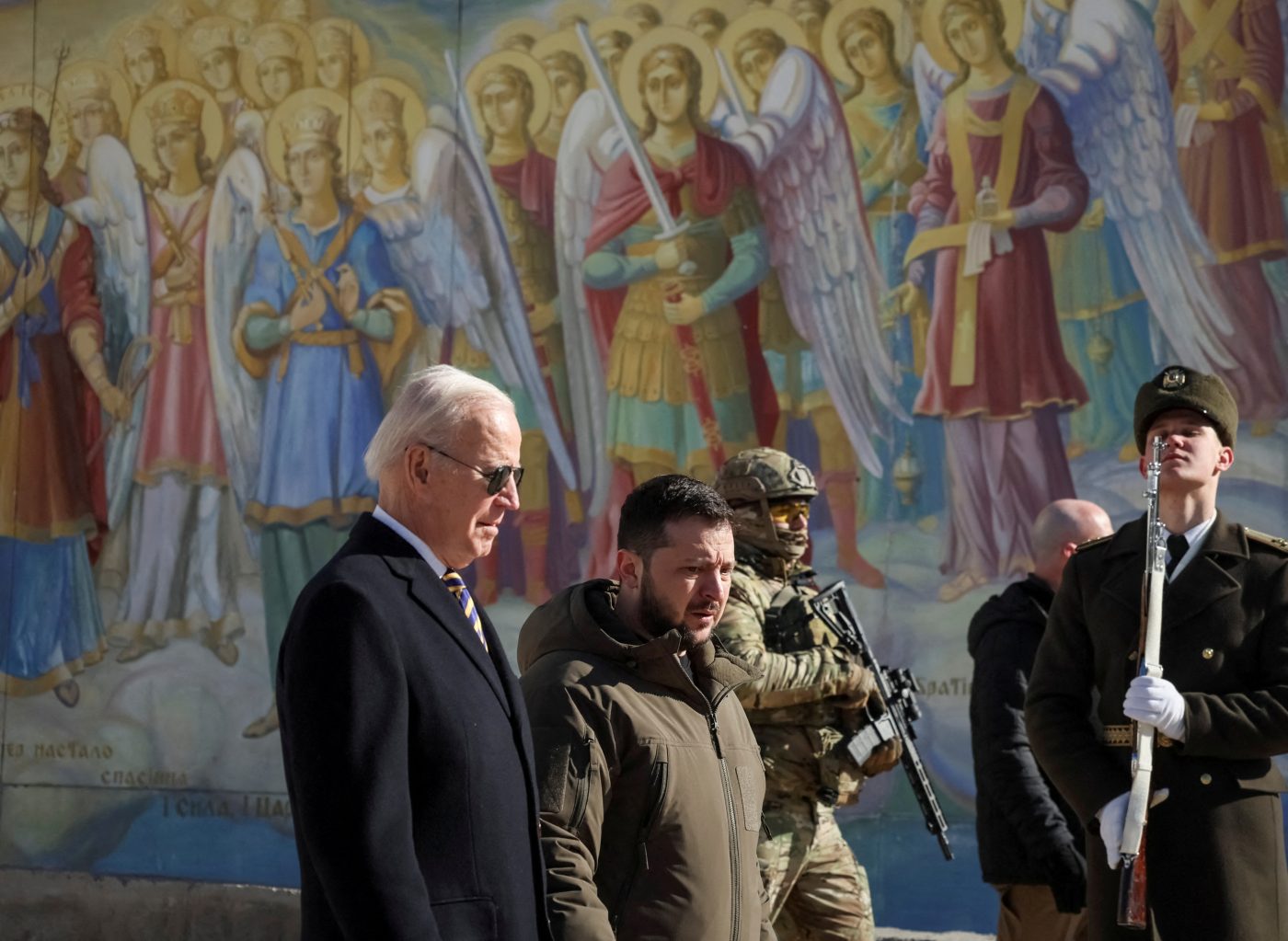The outcome of the Russo-Ukrainian war will define the rules of the geopolitical game for the next century. If short-term economic interests and political brinkmanship prevail, we might discover how it feels to inhabit the nightmare world imagined in The Man in the High Castle, with its alternate ending to World War II.
During President Joe Biden’s October 19 address to the nation, he stressed the importance of continuing to provide aid to Ukraine. He argued the aid allowed Ukraine to defend itself, which helps protect the world order while keeping American military servicepeople safe. If Ukraine were to fall, other dictators around the globe would take note.
Unfortunately, Ukrainians watch as the once-steadfast United States commitment now looks shaky. Whether aid will continue to flow given the reluctance of some House Republicans seems unknowable.
Russia’s aggression against Ukraine represented a gamble by the Kremlin. In 2022, it seemed that had failed. Now it is possible Putin may succeed and might ultimately force a Minsk 3 agreement to cloak its colonial land grab in Western-sanctioned legitimacy. That would mark a disastrous chapter in post-World War II history, framing a new era of might-is-right autocracy and formalizing the shrinking sphere of Western influence.
We are already witnessing the formation of a more challenging global order with two major (US and China) and some more minor (e.g., India, Turkey, Brazil) poles of power. The illusion that Russia might become a reliable Western counterpart, especially to restrain China, is now clearly absurd.
Turning a blind eye to Russia’s failed and half-hearted adherence to democratic change in the 1990s, its consolidation of power and militarization in the 2000s, and the annexation of Crimea and launch of the war in Ukraine in the 2010s and 2020s was clearly a very bad policy. It gave Europe, especially Germany, cheap gas for more than a decade but illustrated the paucity of the argument that trade embeds peace. Short-sighted decisions and a cascade of mistakes brought us to within sight of World War III. The replication of such half-hearted policies will serve only to prove that a repetition of failed ideas results in more failure.
If the Europeans really believe their own analysis that US withdrawal would represent an epochal threat, they must wake up and begin to act. There is no need to discuss the European Union’s strategic autonomy. Talk cannot replace action. The EU (and others like the United Kingdom and Norway) must get together — perhaps using French President Emmanuel Macron’s European Political Community — and begin to work on the most urgent issues facing it, primarily the need for a far larger defense sector.
NATO’s Eastern Flank members — the Baltic states, Poland, and other Central and Eastern European countries, along with Finland and the Scandinavian states — have recognized the risks and have done more than anyone (including the US, at least in terms of the share of national wealth spent) to ensure Ukraine’s survival — nine of the top 10 contributors are from this group.
This has helped buy some time to prepare for a possible broader war with Russia, but the Eastern Flank countries do not have the collective heft to make the continent secure. The courage of Ukrainians has effectively nullified the Kremlin’s threat to their independence, but this would clearly end if the country were betrayed and Kyiv forced to concede. The EU (and whatever would remain of NATO if Article 5 is no longer taken seriously) would have a much longer border with a freshly triumphant Russia.
Russia still keeps an eye on Georgia, which might fall victim to its aggression, when domestic turbulence “demands” another victorious war. The very existence of Moldova depends on the existence of Ukraine. These two countries would probably be the first victims, but they certainly would not be the last.
Of course, our worst imaginings may never occur. It may be that an outward-looking America that understands its interests are interwoven with those of its friends will emerge victorious from the current debate.
A new Ronald Reagan–style US and allied foreign policy would understand the risks of authoritarian victory and work to ensure the strength of a new global alliance — which of course must include friendly countries in the developing world — to resist the dark future imagined by Russia, China, and Iran.
But the first, urgent step to be taken is honoring President Biden’s appeal to pass a significant aid package to ensure not only American but global “security for generations.”
Elena Davlikanova is a Democracy Fellow with the Center for European Policy Analysis. Her work is focused on analyzing opportunities for Ukraine-Russia reconciliation with regard to fascism and totalitarianism in Russia and their effects on Russia. She is an experienced researcher, who in 2022 conducted the studies “The Work of the Ukrainian Parliament in Wartime” and “The War of Narratives: The Image of Ukraine in Media.”
Europe’s Edge is CEPA’s online journal covering critical topics on the foreign policy docket across Europe and North America. All opinions are those of the author and do not necessarily represent the position or views of the institutions they represent or the Center for European Policy Analysis.





